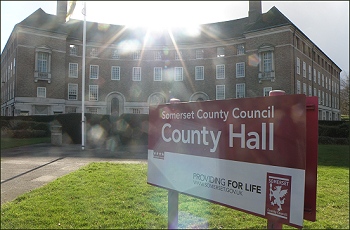Somerset County Council is making preparations for legal action from Southwest One, the joint venture that it formed with IBM in 2007.
Computer Weekly reports that the stand-off is the culmination of 18 months of crisis talks over the joint venture’s failure to deliver procurement savings IBM promised at its outset, and a financial crisis that saw Southwest One deliver a fourth consecutive loss in its 2011 annual accounts this week.
Jo Nacey, chief accountant at Somerset County Council, said the authority has made a contingent liability for a contract claim from Southwest One in its accounts, which are due to be published on 27th September. However, it had not made a firm provision because it believed the claim would be groundless.
“There’s a possible court case regarding our procurement liabilities with Southwest One. We rigorously deny it,” she said.
“They believe they have a claim of a share of our procurement savings. They are contracted to find procurement savings. When they reach a certain level, they are entitled to payments. We are in dispute over the amount of savings we have been given. They say they have delivered more than we think they have. We say they’ve not reached that level and won’t pay.”
The pioneering shared services partnership, which reported an £8.7m operating loss this week, had promised to deliver £195m of savings over 10 years, on £585m of revenues from the sale of back-office services and gains made from consolidating purchases made by Somerset and its other joint venture partners, Taunton Deane District Council and Avon and Somerset Police Authority.
Now halfway through the contract period, the latest accounts showed savings of £13.5m to date on £287m turnover, according to accounts over the four years to the end of Southwest One’s 2011 fiscal year. Some £7.6m of the saving went to Somerset, which contributes nearly half of Southwest One’s fees.
Derek Pretty, chairman of Southwest One, said in his annual director’s report that it and Somerset had an ongoing dispute they failed to resolve after mediation meetings in July.
“No settlement has been reached and accordingly the board will be reviewing which of the remaining options in the contractual procedure should now be pursued,” he said.
Southwest One, which is 75% owned by IBM, said it expected to continue making a loss over the next three years and set aside a £6.2m provision in its accounts. IBM had promised ongoing support for the venture, to underwrite its debts, and in February provided a £10m emergency loan at below market rates.
Mr Pretty said Southwest One was through the worst of its troubles but had still not reached the point where it could deliver its contracted savings.
“The company is still working on reaching the efficiency levels that are required to fund the savings which have been committed to the joint venture partners through service improvements, procurement savings and operation costs reductions,” said his statement.
Southwest One’s turnover has fallen by 39% since its first year of operation, according to the accounts over that time. It attributed its troubles to a drop in government spending that meant its joint venture partners were spending less and therefore saving less than had been anticipated when the contract was drawn up. But the organisation had also counted on bringing other local authorities in on the venture, only to find none where interested.
While Somerset has been taking services back in-house from Southwest One, its model is being replicated in other areas of the public sector, with London Metropolitan University seeking to form a joint venture with an IT company that will also depend on procurement and efficiency savings and persuading other universities to replace their own back-offices with its rented services.







